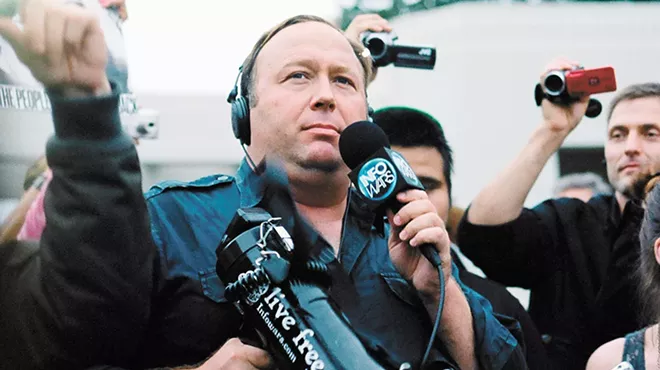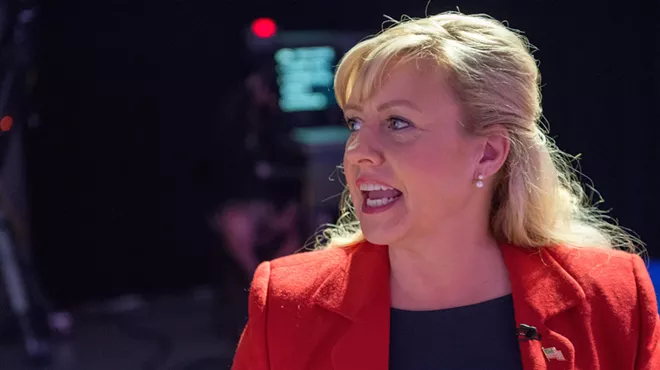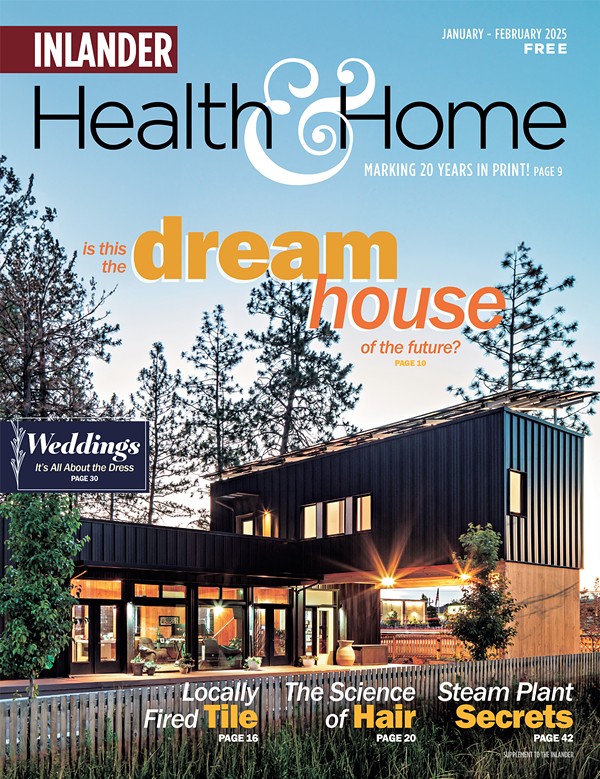Let’s clear up some things. The Earth is not flat. Antifa is not chartering planes and setting fires across the West. Satan-worshipping pedophiles led by the likes of Hillary Clinton and Pope Francis have not united in a deep-state plot against Donald Trump.
You might think to yourself, “No one could possibly believe such absurd things,” but you’d be dead wrong. Lots of Americans do and, thanks to the magic of the internet, they are able to find other people who mirror their zealotry. In fact, in many cases, the algorithms behind Facebook, Google, YouTube and the like have driven them into the arms of each other, led them down dark rabbit holes and delivered them to a place where they’re absolutely convinced of the most outlandish conspiracy theories.
Here at the Inlander, we have warned readers before about the poisonous scourge of bogus information. Last fall, we published a report called “Disinformation Nation” wherein experts predicted things would only get worse in 2020. I think it’s now safe to say: They weren’t wrong.
As silly as it might seem at first, this is no laughing matter. When the most basic facts are up for debate, we as a society are especially vulnerable to manipulation. And it’s happening here and around the world. Last week, a 6,000-word memo from a whistleblower at Facebook — revealed by Buzzfeed News — showed how the social media giant ignored or was slow to react to malicious misinformation campaigns that undermined elections, divided countries and resulted in deadly riots. The whistleblower’s conclusion: “I have blood on my hands.”
There is not a quick fix, but we all need to do our part. For starters, read and support real news outlets run by real people. (The algorithmic news feeds of Facebook and Google are inherently flawed, warping our sense of reality.) Also, think twice before you become a super spreader of viral (but bogus) information; check that it comes from a reliable news source.
Finally, watch the new Netflix documentary The Social Dilemma. The film isn’t perfect — it uses some corny dramatization — but it features a number of tech insiders who had a hand in creating this monster. Their warning about social media is terrifying: “We’ve created a system that biases toward false information, not because we want to, but because false information makes the companies more money than the truth. The truth is boring.” ♦
Jacob H. Fries is the editor of the Inlander.

























